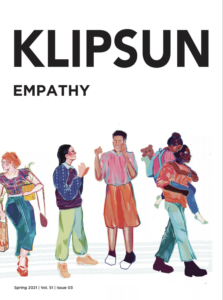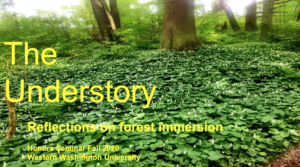Joan Connell – Professor Emeritus
Joan Connell, BA
-
Dear Prof. Connell,
You probably don’t remember me, but I was one of your students ….
So begins the sort of note that often lands in my inbox, from alumni who want to ask a question, request a reference or just let me know what’s happening in their lives.
Of course I remember you! And I’m so pleased you reached out.
After 12 years of teaching journalism at Western Washington University – by my count that adds up to some 1500 students – it thrills me to hear what you’re up to and even more if I can offer professional help in any way. Western has made it easy for me to stay in touch – and to continue my own journalistic work from my perch here in Birch Bay, Washington.
As an emerita faculty, I have kept both my WWU email address (joan.connell@wwu.edu) and my access to Canvas, so I can refresh my memory of your brilliant ethics research papers or stories published in Klipsun, so as to write a proper recommendation for a fellowship or a job application. I also have library privileges to continue my research. Best of all, I have free parking, so I’ve been on campus quite a bit in the past year, attending lectures and public events that I never had time for when I was teaching.
The main focus of my research these days is artificial intelligence. AI promises to transform the news industry, our information environment, our laws, norms and ethics – and the creative process itself. And while large news organizations like the Associated Press, Reuters and Bloomberg are making big bets on AI to improve efficiency and introduce innovations into reporting methods, AI is still poorly understood – by the general public, but also by most journalists.
AI has been around in one form or another since the 1950s, creating a broad set of tools that have given us Siri, Alexa, Grammarly, Spellcheck, Zoom transcripts and Otter AI. But Generative AI – chatbot technology that generates predictive texts in response to human prompts – is a true game-changer. Chat GPT, Microsoft’s Bing Search Engine, Google’s Gemini are major players, but they represent only the tip of the AI iceberg.
I’ve found that journalists are having a hard time reporting on generative AI and the Large Language Models that provide training data for chatbots. They also have much work to do on responsibly using this technology in their reporting. They tend to easily fall for the Silicon Valley hype around Chat GPT, Google and Meta, and their attempts to explain the AI phenomenon are generally more oriented toward science fiction than toward rigorous inquiry. And very few newsrooms have a code of ethics specifically targeting the use of AI. Some of the most significant learnings have come from University of Washington linguist and computer scientist Emily Bender, a major critic of media misrepresentations of AI and MIT’s Joy Buolamwini of the Algorithmic Justice League. I’m especially grateful to the Harvard Graduate School of Education’s AI Pedagogy Project, which has conducted a series of Zoom-based seminars on media literacy in the age of AI.
I had a chance recently to share some of these learnings at the Society of Professional Journalists Region 10 Student Conference, held in Seattle in mid-April. It was wonderful to make contact with some of my former students and to learn how they are meeting the challenges of AI in the newsroom and in real life. Here’s a link to the slide deck for that presentation: Media Literacy, Media Ethics and Artificial Intelligence.
What are your experiences with AI? What questions do you have about the way this technology will transform our lives?
Send me an email. Connect with me on LinkedIn. I promise, I will remember you.


 More that 800 participants — including most of my Mass Media Ethics class — engaged in a one-on-one of sorts over Zoom with Kendi, who is the Mellon Professor in the Humanities at Boston University and winner of a 2021 MacArthur Genius award. Kendi’s book, ”
More that 800 participants — including most of my Mass Media Ethics class — engaged in a one-on-one of sorts over Zoom with Kendi, who is the Mellon Professor in the Humanities at Boston University and winner of a 2021 MacArthur Genius award. Kendi’s book, ”
 No sane person could say that they’ve actually enjoyed the altered universe of remote learning we’ve inhabited for more than a year now. But for all the heartache of COVID-19 has brought us – grief and sickness, isolation, lost jobs, derailed dreams –
No sane person could say that they’ve actually enjoyed the altered universe of remote learning we’ve inhabited for more than a year now. But for all the heartache of COVID-19 has brought us – grief and sickness, isolation, lost jobs, derailed dreams –